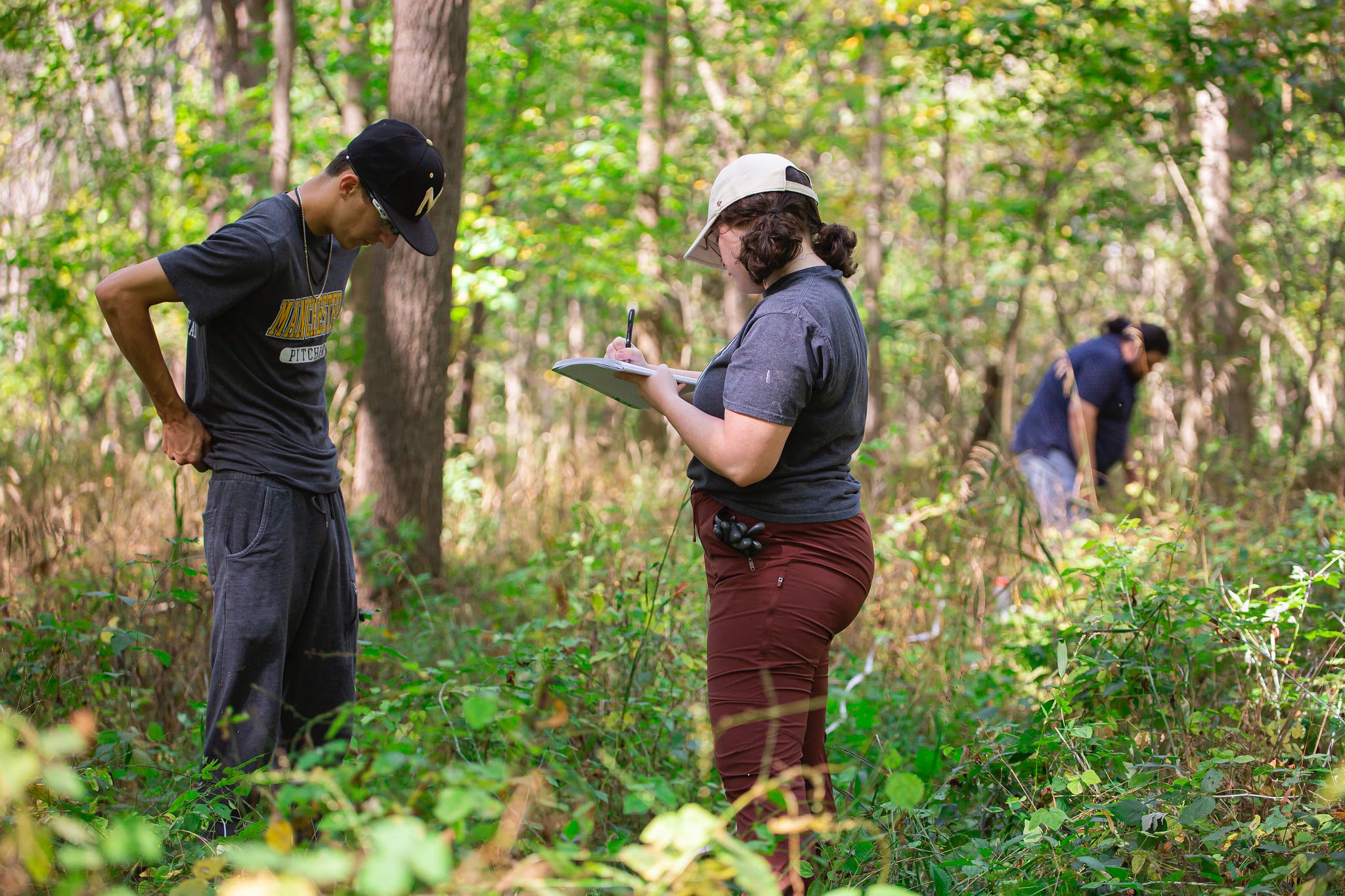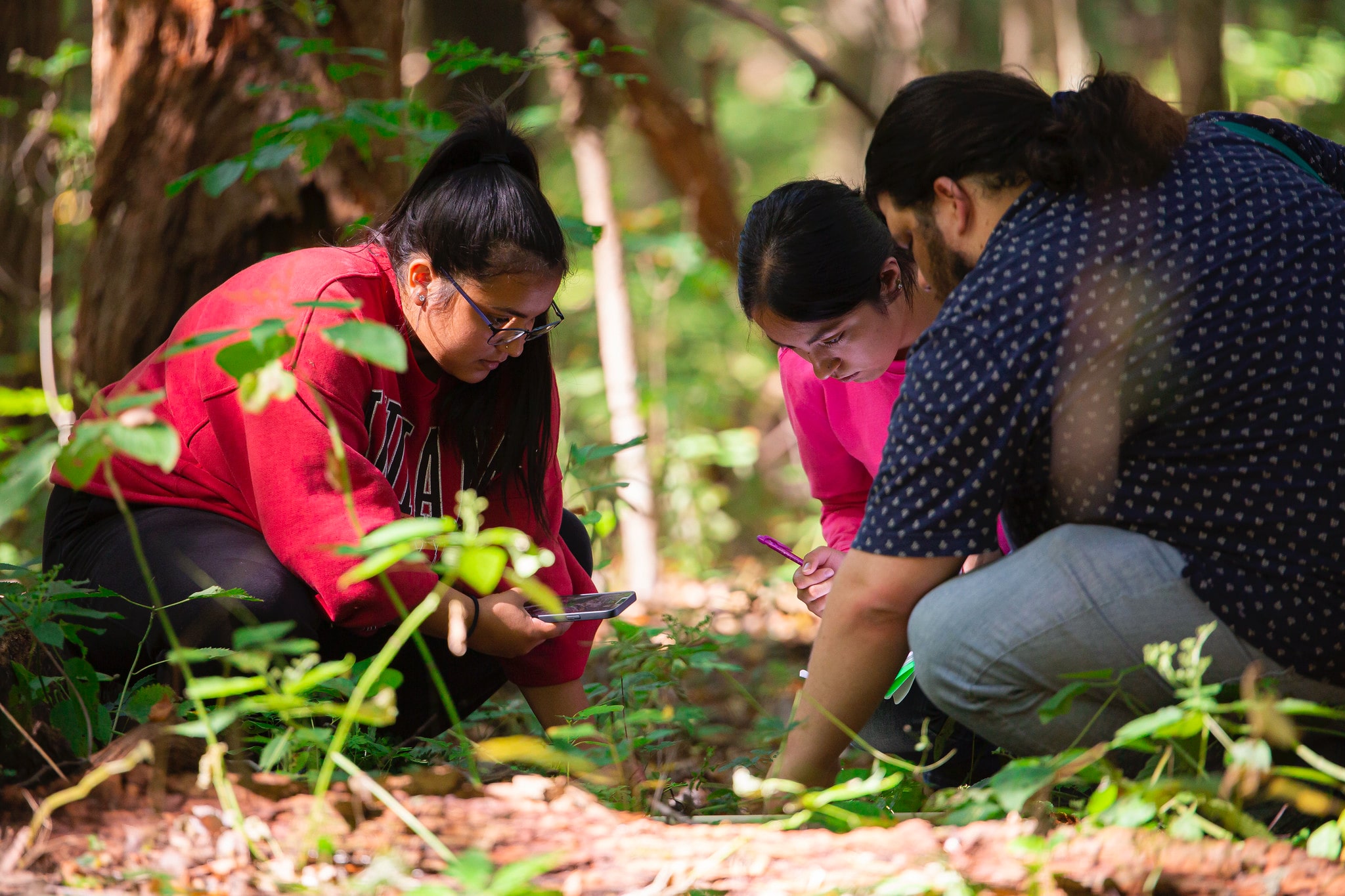Environmental Studies
Manchester’s environmental studies program, established in 1971, is among the oldest ES programs in the country. Students learn about the state of the local and global environment, and are prepared majors to fill vital roles in environmental science, education, public policy and related fields.

Environmental Studies Major
Through research and special study opportunities on and off campus, environmental studies majors at Manchester engage in real-world experiences in the lab and in the field. You may find yourself “getting your feet wet” in a creek researching fish habitats or standing in the ocean in the Bahamas studying sand dollars. Or maybe you’ll find yourself in a forest, surveying bird populations and vegetation.
Program Information:
Major | BS
- 51-56 Credit Hours
Minor
- 26 Credit Hours
Location
- North Manchester
Why Choose MU for Environmental Studies?

Career Preparation
More than 95 percent of our graduates are accepted into graduate programs or in entry-level environmental jobs.
Research Opportunities
Study Intensives in Various Environments
The Department's Mission
What You Can Do with Your Environmental Studies Degree
Environmental Consultant
Assesses environmental risks and ensures regulatory compliance for businesses.
Conservation Scientist
Manages natural resources to promote sustainability and ecosystem health.
Environmental Educator
Teaches communities about conservation, sustainability, and ecological responsibility.
Wildlife Technician
Supports research and conservation efforts by monitoring animal populations.

Average Starting Salary for Environmental Sciences Degree Holders
According to the U.S. Bureau of Labor Statistics, environmental scientists and specialists earn a national mean annual wage of approximately $59,060. Entry-level professionals typically earn between the 10th and 25th percentiles, which ranges from about $50,130 to $59,060. Based on this data, students graduating with an environmental studies degree can expect an average starting salary around $55,000 per year.

Meet the Faculty
Environmental Studies Learning Outcomes
Program Learning Outcomes
Program Learning Objectives
- Critical Thinking – Students will demonstrate critical thinking skills in relation to environmental issues.
- Interdisciplinary Synthesis – Students will demonstrate an ability to integrate the many disciplines and fields that intersect with environmental concerns.
- Ecological Literacy – Students will demonstrate an awareness, knowledge, and appreciation of the intrinsic values of ecological processes and communities.
- Communication – Students will demonstrate knowledge and application of communication skills and the ability to write effectively in a variety of contexts.
- Stewardship and Sustainability – Students will demonstrate an integrative approach to environmental issues with a focus on sustainability.
- Professionalism – Students will demonstrate familiarity with the professional practices of environmental careers.
Student Learning Outcomes
- Describe the process of scientific peer review and its role in mitigating the influence of bias in research.
- Synthesize information from a variety of sources that not only demonstrates an ability to identify an environmental problem, but also propose options for solutions.
- Demonstrate depth in critical analysis and in writing about environmental problems that span popular and peer reviewed publications.
- Synthesize the interactions of scientific, economic and political perspectives regarding local, regional and global environmental issues in the context of current literature.
- Describe the fundamental structure and function of natural systems, and how humans can alter these systems.
- List and describe local, regional and global environmental issues.
- Demonstrate a general proficiency in the use of qualitative and quantitative research methods to gain empirical evidence for environmental decision-making.
- Demonstrate the ability to write using common scientific or other appropriate formats.
- Demonstrate the ability to communicate information orally in a sequential organized fashion.
- Design, conduct and present (orally and in writing) independent research that is consistent with the standards and practices of research in environmental science.
- Identify and justify key stakeholders in the natural sciences that need to be a part of sustainable solutions for environmental issues.
- Formulate an action plan for sustainable alternatives to environmental issues that integrate ecological, social and economic perspectives.
- Produce a CV or resume, and personal statement.
- Complete an internship or research project.
- Display punctuality, professional communication, time management, and self-motivation.
Non-Discrimination in the Admission Process
Manchester University is committed to non-discrimination in campus life. The University does not discriminate on the basis of national origin, ancestry, race, color, age, sex, gender identity or expression, sexual orientation, familial status, religion, disability or veteran status in admissions or any area of campus life, including its educational programs, scholarships and loan awards, residence life programs, athletic programs, extracurricular programs, promotion and tenure policies and practice, and alumni affairs.
Manchester University is committed to carry out the provisions of Section 504 of the Rehabilitation Act of 1973 and the Americans With Disabilities Act, which provide for accessibility of University programs to the physically disabled.








